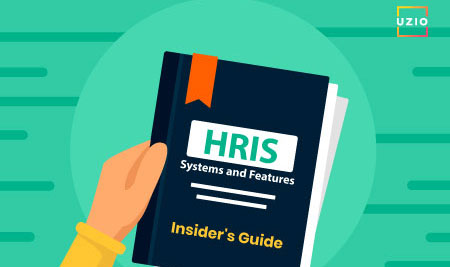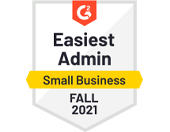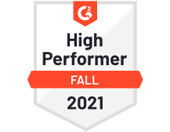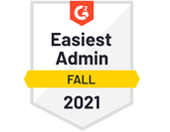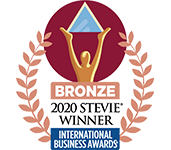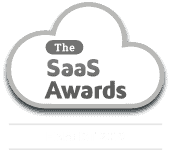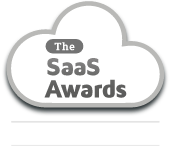The word ‘Information System‘ depicts an integrated platform to manage a large chunk of data. Management Information System or MIS is a widely used term in organizations to ensure the safekeeping of their operational records.
But is there any connection between HR and the cloud storage platform? How will it help HR managers to enhance operational efficiency?
HRIS or Human Resource Information System is a software package with a similar bucket of benefits of ‘MIS’ that allows HR managers to embed every crucial data in a single platform. HR managers daily deal with large unorganized datasets scattered on several different platforms. Handling this data from distinct platforms and integrating them to draft analysis is a quite chaotic and strenuous task.
HRIS is the solution, a platform to integrate data from different sources and execute every task efficiently in an automated fashion.
Now the second question one reckons is regarding its value propositions. Most of the organizations store their crucial data in this cloud-enabled platform to streamline their operations. The benefit bucket comprises of the following functions-
- Record-keeping. An HRIS is a record-keeping system for tracking every minuscule information of employees. Organizations observe the severe cases of data breaches for the trail of paperwork and even face financial losses. HRIS system revamps the paperwork system to a digital record-keeping platform. The software accounts for maintaining transparency and eradicating toxic environments in the organization.
- Compliance. Organizations with activities in the U.S. must retain personal expenses from their U.S.- based representatives. Income tax is payable across seven groups, with logically higher rates applied for higher income, going from 10% up to 37%. There is no base limit at which annual income tax is exempt. However, the stipends in each band change for the accompanying gatherings:- single individuals, married people filing separately; heads of households; married people filing jointly; widows and widowers.
Extra business prerequisites include:
- Filing Form 941 (quarterly compromise) toward the finish of each quarter.
- Filing Form W-3 with the Social Security Administration (SSA) every year.
- Providing all workers with Form W-2, which is the annual wage and tax statement, by January 31 of consistently.
Recommended reading: A Guide to Essential Payroll Forms & More for Small Business Owners
Taking care of all these compliances is a big hassle for the HR manager. HRIS is the name of the solution to cater to all these bewilder tasks to give you a sigh of relief from these complexities.
- Productivity: One of the significant functions of HRIS is that it helps organizations to enhance their productivity. Integrating data in a single platform helps in accelerating the process efficiently. An HRIS system is the only constant in your organization to witness the hassle-free completion of the employee life cycle. Starting from an automated onboarding process to smooth reimbursement after the notice period HRIS is the only solution to build a hassle-free process.
- Strategy: The HRIS enables the tracking of data, analyzes it, and implements it in different verticals on the priorities of the organization.
- Transparency: A final benefit is the ability to offer transparency within an organization. The software enables employees to monitor their activities. The right execution of HRIS helps to execute a good employee experience.
The benefit bucket comes with some features to execute the mentioned functions hassle-freely. The innovative software encompasses the following features-
- Onboarding: The process of onboarding usually takes a colossal amount of strenuous paperwork. Employees find it cumbersome to repetitively enter the same pieces of information in various documents. HRIS has turned the monotonous manual labor to a dynamic one by reducing the extensive paperwork in the process. The cloud server will capture every crucial information regarding the employee from one document and deploy that to every other copy and reduce the workload. The only job of the HR manager is to register the employee details initially to the cloud platform and then upload any single document to get filled out manually. The data will get stored in the system and can be retrieved for any other documents automatically in the future.
- Payroll: The payroll system automates the pay process of employees. The cloud-enabled platform tracks every data from attendance to leave taken in that month to calculate the payroll process. HR managers often get bewildered at managing different sets of taxes for both permanent employees and individual contractors. 1099-MISC usually applicable to the independent contractor, to pay over their employment taxes. A W-2 form, on the other hand, applied for permanent employees to deduct payroll taxes from their earnings. An HRIS system will automate the process for both of the tax payments, and it also seamlessly handles payment of state and federal taxes for your organization.
- Employee Benefit Management System (EBMS): Another feature of the HRIS is benefits management. Employee benefits are a crucial aspect of compensation, barring that monetary and non-monetary benefits also get managed in this system. Moreover, it offers each employee a self-service model for benefits management. Employees can monitor health insurance, retirement accounts, vacations, paid time off in a single platform. They can select the customized benefits options from the available bucket. Someone might require additional paternity leave, the other one might opt for an expensive company car. This personalized approach to benefits is also called a cafeteria model.
- Identifying Training Needs: Training and development is a prime element when it comes to employee management. This module allows HR to develop a tailor-made training module according to the need of the employees. The machine learning algorithm helps to analyze the qualifications, certifications, and skillsets of the employees, and predict the training need for that particular person. The training need will be unique for every employee, and they can also track the Learning Management System in their dashboard.
- PTO management: Do your employees retaliate with you for miscalculating paid leaves? Unfortunately, this is the usual scenario of every workplace, and coping with that is indeed a big challenge. Often employers fallaciously slip-up in the calculation, and on many occasions, employees commit the same mistake.HRIS is the platform to embed the details paid leaves and gives notifications to both employees and employers to utilize it effectively.
- Analytics in an HRIS: HR managers can also track their performance through this software. They can analyze their strategic implementation and success rate of the same through records. Starting from manpower planning to attrition percentage the data will help HR managers to work upon critical areas.
UZIO is the name of these precedent solutions. Automation is not only enhancing productivity but also helps to optimize operational expenses. Organizations can integrate every piece of information on a single platform and operate from there to reduce the maintenance cost of different software. UZIO HRIS is a disruptive technology with the superior attributes to sweep away the traditional strategic approach of Human Resource Management. If you still haven’t incorporated the state-of-the-art solution, spontaneously contact the industry expert to entice your workforce efficiency. Contact UZIO out rightly for their virtuoso guidance.
Get in touch with us for an expert-led demo to know more about UZIO payroll services.
